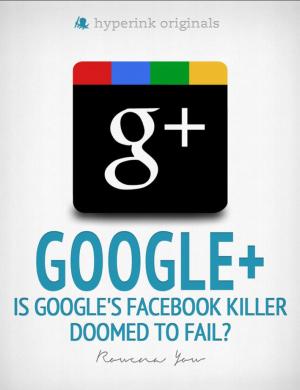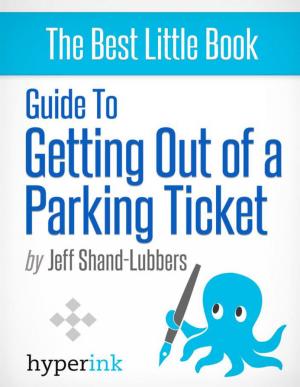| Author: | The Hyperink Team | ISBN: | 9781484007037 |
| Publisher: | Hyperink | Publication: | February 8, 2012 |
| Imprint: | Hyperink | Language: | English |
| Author: | The Hyperink Team |
| ISBN: | 9781484007037 |
| Publisher: | Hyperink |
| Publication: | February 8, 2012 |
| Imprint: | Hyperink |
| Language: | English |
ABOUT THE BOOK
Investing in a new computer is a big deal. Unless you are one of the few who can afford to buy new computer equipment every year, you will probably keep your next purchase for four or five years. That means it has to last, and only a planned and calculated investment will help you to achieve this.
Not all of us can invest in the best and most expensive computer that has been just released into the marketplace – and luckily, we don’t need to. Most people are unaware that by just being a little cautious, you can save a lot on your computer investment, and at the same time get the equipment that suits your needs and demands..
MEET THE AUTHOR
The Hyperink Team works hard to bring you high-quality, engaging, fun content. If ever you have any questions about our products, or suggestions for how we can make them better, please don't hesitate to contact us!
Happy reading!
EXCERPT FROM THE BOOK
Tip #1: Know your needs.
Everyone has different expectations for their computer, and this is the reason why there is such a diverse variety of computers in the market.Those who travel a lot find that laptops suit their needs. Those who usually use their computers at home find that desktops are best, especially since they are much cheaper than laptops.
What are your needs? Before you begin researching computers, you should have an idea about the features you would like to have in your computer. For instance, if you just use your computer for web browsing, you can save hundreds of dollars by going in for a netbook rather than spending extra money on the large memory space of a computer that you are never going to use. Just because a salesperson or website offers you the option of an extremely powerful computer does not mean that you need to buy it.
Similarly, someone who only surfs does not need to buy an expensive graphics card for advanced video games. There’s no need to stretch your budget to buy the latest available offering; what’s new today will most likely be replaced with something else tomorrow.
Tip #2: Don't go in for a lot of added software.
Buying a computer with a lot of software will not be of any help to you; chances are, you won’t use most of it. All your new computer needs is a pre-installed operating system, as this will help you to save money on the cost of upgrading.
After you’ve made your purchase, you can install any extra software on your own. For instance, buying a computer with Microsoft Office installed is definitely more expensive than buying the software separately. Computer companies try to provide all kinds of software with their computers and pretend to offer you a deal, which is certainly not true. Shopping around for your own software extras such as antivirus, a word processor, a pop-up blocker, and spyware removal is definitely going to be more economical in the end.
Buy a copy to continue reading!
ABOUT THE BOOK
Investing in a new computer is a big deal. Unless you are one of the few who can afford to buy new computer equipment every year, you will probably keep your next purchase for four or five years. That means it has to last, and only a planned and calculated investment will help you to achieve this.
Not all of us can invest in the best and most expensive computer that has been just released into the marketplace – and luckily, we don’t need to. Most people are unaware that by just being a little cautious, you can save a lot on your computer investment, and at the same time get the equipment that suits your needs and demands..
MEET THE AUTHOR
The Hyperink Team works hard to bring you high-quality, engaging, fun content. If ever you have any questions about our products, or suggestions for how we can make them better, please don't hesitate to contact us!
Happy reading!
EXCERPT FROM THE BOOK
Tip #1: Know your needs.
Everyone has different expectations for their computer, and this is the reason why there is such a diverse variety of computers in the market.Those who travel a lot find that laptops suit their needs. Those who usually use their computers at home find that desktops are best, especially since they are much cheaper than laptops.
What are your needs? Before you begin researching computers, you should have an idea about the features you would like to have in your computer. For instance, if you just use your computer for web browsing, you can save hundreds of dollars by going in for a netbook rather than spending extra money on the large memory space of a computer that you are never going to use. Just because a salesperson or website offers you the option of an extremely powerful computer does not mean that you need to buy it.
Similarly, someone who only surfs does not need to buy an expensive graphics card for advanced video games. There’s no need to stretch your budget to buy the latest available offering; what’s new today will most likely be replaced with something else tomorrow.
Tip #2: Don't go in for a lot of added software.
Buying a computer with a lot of software will not be of any help to you; chances are, you won’t use most of it. All your new computer needs is a pre-installed operating system, as this will help you to save money on the cost of upgrading.
After you’ve made your purchase, you can install any extra software on your own. For instance, buying a computer with Microsoft Office installed is definitely more expensive than buying the software separately. Computer companies try to provide all kinds of software with their computers and pretend to offer you a deal, which is certainly not true. Shopping around for your own software extras such as antivirus, a word processor, a pop-up blocker, and spyware removal is definitely going to be more economical in the end.
Buy a copy to continue reading!















